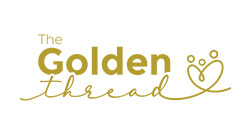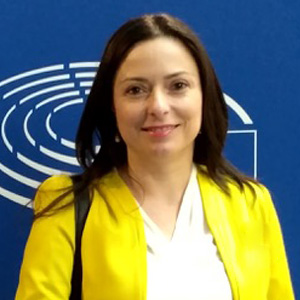Golden Thread: Building Family Bonds and Parenting Skills as a Means to Reduce Recidivism in European Prisons
With more than half million people behind bars in Europe, prisoner rehabilitation has grown to become one of the most prominent features of European penal policy. International law stipulates that imprisonment should not be limited to the deprivation of liberty alone. It should include opportunities for prisoners to obtain knowledge and skills that can assist them in their successful reintegration upon release, with a view to avoiding future offending. Until today, receiving general education and vocational training have been considered the two most successful means for the successful reform and return and reintegration of prisoners back into the society. However, a growing body of research, unveils the fact that one of the strongest predictors of the reduction of recidivism is – along employment – the existence of strong familial ties.
The role of the family in reducing recidivism and supporting reintegration is now for the first time considered as “part of the solution”. In the words of the famous Farmer Review “healthy, supportive relationships are not just a “nice to have” for every prisoner in the criminal justice system. They are utterly indispensable if they are to turn away from criminality and contribute positively to society. Family and other relationships need to be a golden thread running through the criminal justice system”. Strong families have a natural power to provide the much-needed ongoing direction and personal support a reformed ex-prisoner needs to start anew. Strong families are a moral compass that re-direct (ex)offenders away from crime. Strong families offer shelter and financial assistance, in the days that follow the release. But, strong familial ties benefit not only prisoners, but society as a whole. Given that the majority of prisoners’ families are profoundly motivated to help their prisoners serving sentences build a better life for themselves, free from offending patterns of behaviour, they constitute a potential army of support for the prison system that has not yet been strategically and consistently deployed.
Aim
The Golden Thread project is expected to develop a comprehensive methodology for the systematic strengthening of prisoners’ familial bonds and the support of family members to provide care to each other. The Golden Thread approach is comprised of the following two distinct components:
- the Family Learning Workshops and a peer support methodology for prisoners’ families
- the Prisoners Families Support Groups.
The Golden Thread methodology is practical, emotional and relational. This methodology is expected to lay the essential groundwork to equip prisons and the communities with all the necessary methodologies and tools that will assist them to capitalise on the enormous power of family bonding on the prisoner reintegration cause.
Target groups
The audience of the project are:
- Prisons in the four partner countries (Poland, Greece, Italy and Cyprus)
- Prisoners and their‘ families
- prisons‘ principals, guards, social workers
- public and private authorities in the area of prison systems, public national and local authorities, civil society organizations, prisons’ guards federations, NGOs, researchers, the scientific community
Project Results
- Review of missing social, emotional and parenting skills of prisoners and the impact of incarceration in their families – This comprehensive review will constitute the basis upon which the consequent work packages will be based, since it will identify the project’s target group in relation to specific knowledge and skills required for their preparedness to integrate once their term ends. The needs analysis will exert a strong influence to the creation of a comprehensive approach in the prisoner preparation procedure, the nature of the curricula and the pedagogic methodologies which will be employee.
- The Family learning Curriculum – The development of the Family Learning Curriculum marks one of the most important stages of the project. The aim of this output is the creation of a curriculum that will bring men face-to-face with their enduring responsibilities to the family left in the community – particularly their wives, partners and children, but also their parents, siblings and grandparents – and provide them the skills necessary to further strengthen both their familial ties and their connections to the wider societal network. This output aims to address a need for an organised educational activity, designed with a practical focus, arising from prisoners ‘ experienced urge to address family issues.
- Family Support Groups – The aim of the Prisoners‘ Families Support Group Methodology is to support prisoners‘ families maintain and repair relationships, and where appropriate, to further contribute in offenders ‘ rehabilitation process. Family support groups are expected to constitute a powerful tool to provide opportunities to share experiences; meet, learn and gain encouragement from others in similar situations and offer family members of prisoners a place to focus on their own needs.
- The Prison Family Learning Guide – The Prison Family Learning Guide is the ultimate project output. Its aim is the development of a comprehensive approach for the successful future transfer of the project experience to other prison institutions throughout Europe. The elaboration of this guide will be an effort to institutionalise permanently and to ordinarily introduce the proposed family learning and family support methodologies in the European penitentiary system. The Prison Family Learning Guide is a comprehensive step-by-step strategy that incorporates all the elements that are required for the successful implementation of a family learning support program in a prison context, such as methodology, action plan, capacity building activities.
Added value
The impact of the project is very important on many levels of social life. At first, the added value of the project is to underline the importance of prevention in social life. The development of family bonds requires competences which can be described as social, emotional and personal. These are often not the subject of a school system. Thus the methodology and tools delivered by the project can be also used as an inspiration for developing competences mentioned as a part of the social prevention system. By taking care of values, the results of the project will help people, not only those dealing with crimes or the penitentiary system, to find their own system of values. We live in a world in which there’s a problem of values, but not because there are no values – on the contrary there are too many values that can be contradictory. So, the project can help people not to get lost in the contemporary world.
Planned activities
All partner countries will be involved in:
- development of project results
- running interviews with prisoners and the staff in prisons
- trainings for the target groups
- running Family Learning Workshops for prisoners and their families
- local Multiplier Events

Project duration:
January 2022 – July 2024

More information:
Project coordinator

Uniwersytet Łódzki
Poland
Project partners

APROXIMAR – COOPERATIVA DE SOLIDARIEDADE SOCIAL
Portugal

ATHENS LIFELONG LEARNING INSTITUT EASTIKI MI KERDOSKOPIKI
Greece

Fundacja Rozwoju Aktywności Międzynarodowej i Edukacyjnej – FRAME
Poland

THEOLOGIKI SXOLI EKKLISIAS KYPROU
Cyprus
Contact the project supervisor

Adam Gogacz
adam(at)gogacz.eu

Marta Kędzia
mkedzia(at)euframe.eu

Katarzyna Kasznicka
kkasznicka(at)euframe.eu

